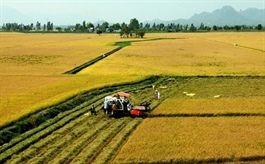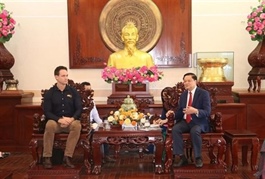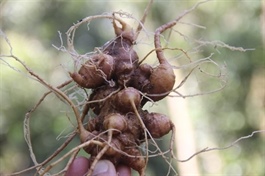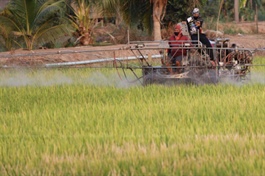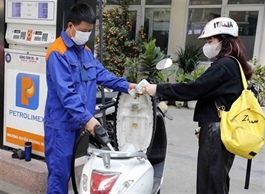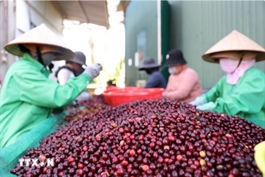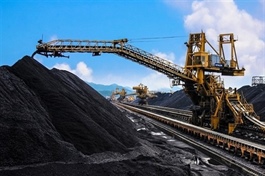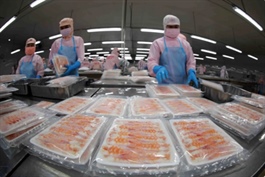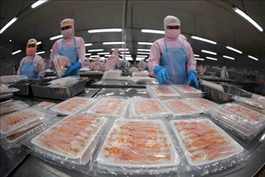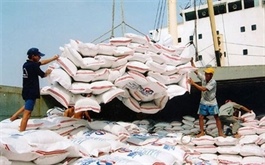State authorities will not participate in petroleum price management process
State authorities will not participate in petroleum price management process
In the latest draft on amending petroleum business regulations, the Ministry of Industry and Trade (MoIT) proposed that the State authorities will not participate in the price management process, but announce the factors that form the price range, within which businesses set the prices themselves.
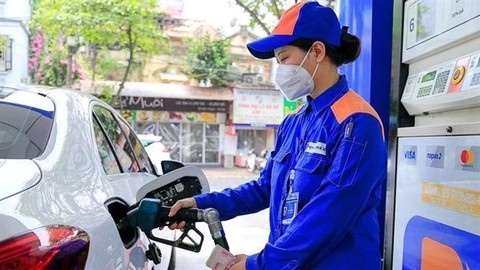
The latest draft Decree on petroleum business proposes that the State authorities will not participate in the price management process, but simply announce factors forming the price range in which businesses set the price themselves. — Photo vneconomy.vn |
The second draft was revealed on April 1, a few days after the ministry submitted the first draft of the revised Decree on petroleum business.
The MoIT said that current price management was not guaranteed to follow market mechanisms because management agencies currently have to go through too many steps and businesses are not proactive in setting retail prices in the distribution system but rely on the base price announced by the management agency.
The base prices of petroleum products are based on factors formed over a relatively long period, while business costs and weighted average import taxes are calculated based on data from the previous quarter to use in calculating base prices of petroleum products for the next quarter, not reflecting current conditions.
The new draft stipulates that the average world price will be announced every seven days (the first draft took an average of 15 days) and allows petroleum traders to factor in business expenses and profit norms in setting the selling price on the market.
However, the selling price of wholesale enterprises must not be higher than the price calculated according to the inter-ministerial formula. This means that the current 7-day cycle of adjusting gasoline prices can be maintained instead of averaging 15 days as the first draft proposed a few days ago.
According to the new draft, business costs and standard profits of wholesale petroleum firms will be calculated following two options:
Option 1, business costs and standard profits of the enterprise are calculated according to absolute value. Calculations by the Ministry of Industry and Trade show that currently the costs from inputs, commissions and discounts to the retail stage are from VNĐ1,800 to VNĐ2,500/litre.
Option 2, business costs and standard profits of the key petroleum enterprises will change in percentage based on fluctuations in world gasoline prices. Accordingly, the maximum cost and profit of the business may fluctuate up to 20 per cent when the world price is at US$30/barrel and gradually decrease to only 4 per cent if the world price reaches $120/barrel.
In case business costs and enterprise profits increase, the MoIT will work with the Ministry of Finance and relevant agencies to report to the Prime Minister for adjustment.
According to this new draft, in areas far from ports and wholesale warehouses, if actual costs rise, wholesalers and distributors can decide the selling price in the area after sending a report to the MoIT. However, the price increase cannot exceed 2 per cent of the maximum selling price in accordance to regulations.
Businesses must compete on costs to dominate the market. Enterprises are allowed to sell at prices lower than the prescribed maximum selling price, according to the draft.
Regarding the price stabilisation fund, the new draft suggested maintaining the fund. When world prices increase continuously for 15 days, the MoIT will send a document to the Ministry of Finance to report to the Prime Minister to consider extracting money from petrol sales for the fund or using the fund according to the provisions of the Price Law.
The new draft also allows wholesale firms to rent warehouses but requires periodic reports on warehouse use and assigns the Departments of Industry and Trade to inspect and supervise.







